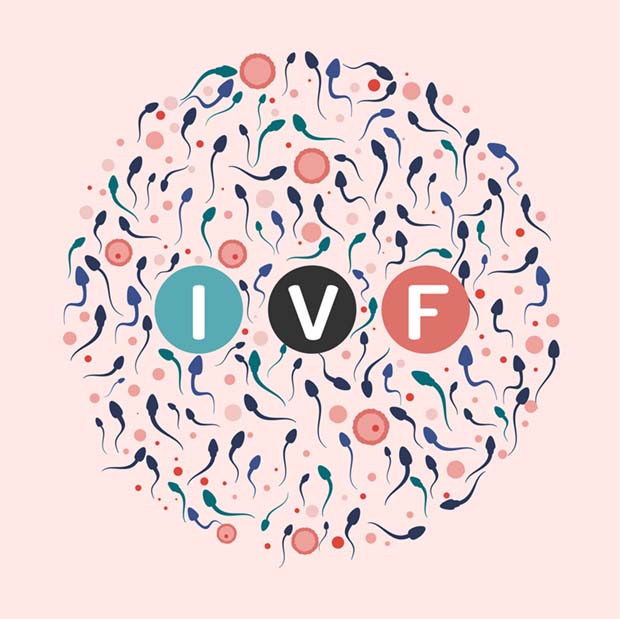IVF is a significant step, and because there is so much information available, it can be difficult to sort out the where, what, when, whys, and hows. Although there are many online resources for things IVF, they might be daunting. Additionally, even while fertility specialists try our best to describe things in simple words, there are still a ton of scientific, medical, and acronym-based terms that can be confusing to readers. Lets take a look at IVF facts you need to know about.
IVF Facts You Need To Know About
1 . Your eggs’ age matters
As you are already aware, fertility is affected by maternal age (35+). You produce fewer eggs as you age, and the quality of your eggs starts to deteriorate. Despite this, a lot of women still believe that IVF is a miracle cure that can be achieved by simply creating an embryo and inserting it into the uterus. You conceive a child. It is not at all the case.
When comparing IVF success rates between women in their 20s with infertility factors and women in their later 30s and 40s, even without infertility factors, pay attention to “live birth rates” (more on that below). This is one of the reasons we advise older women who have had several unsuccessful IVF rounds to think about using donated eggs.
2 . Live birth rates differ from pregnancy rates
You will make a better decision when selecting the best fertility center for you if you have a better understanding of the IVF success rates for potential IVF centers. One of the first things to notice is that “live birth rates” and “pregnancy rates” are always two independent columns with different numbers.
Getting pregnant through IVF is an excellent sign of your capacity to conceive and give birth to a child who will live to full term, but it does not ensure a successful full-term pregnancy.
The IVF process frequently results in pregnancy loss, and miscarriages frequently result in several IVF cycles. For more specific information about your scenario, we advise asking fertility clinics about their live birth rates for couples in the same age/infertility factor range.
3 . Menstrual cycles are substantially shorter than IVF cycles in length
IVF cycles may initially appear to have many phases yet be a straightforward process. Given that everything will be timed to coincide with your menstrual cycle and that you will need to take potent fertility meds, which may temporarily drive you insane, how long can a month truly be?
The normal IVF cycle takes four to six weeks from the start of a single cycle to ascertain whether or not viable embryos were generated because there are numerous stages before and after the cycle synchronizing dates. Following the agonizing two-week wait to learn if treatment was successful, it takes another four to six weeks to synchronize your cycle to transfer the embryos.
IVF cycles last, on average, over three months from beginning to end, and the majority of couples require many cycles before they are successful.
4 . It can require more than one IVF cycle
It’s not unusual for a couple to try multiple times before becoming pregnant. Knowing this is crucial because it suggests that you might need to think creatively (Using donor eggs?
Sperm donated? embryonic donor? Gestational carrier?) to save you from exhausting yourself by obsessing about conventional IVF. Based on your diagnosis and fertility history, your fertility we will be able to advise you on which alternative techniques make the most sense.
5 . Even if you’ve already had children, you may still need IVF
Many couples who easily become pregnant at home the first time are surprised when they are unable to do it again — month after month, and sometimes even after a year or more. Secondary infertility is what’s known as this, and according to to RESOLVE, secondary infertility accounts for roughly 30% of infertility diagnoses.
This is why it’s crucial to speak with your OB or get a referral to a fertility expert if you’re having problems conceiving even after trying for 12 months in a row. To be safe, if you are 35 or older, get help after six months; if you are 38 or older, get help after three months.
6 . It affects your mental and emotional well-being
Although some couples visit, are evaluated, and become pregnant with IVF in the first round, they are the exception. The average couple has to go through three or more IVF cycles, as was previously mentioned. Both the process and infertility/fertility therapies have an impact on relationships and one’s mental and emotional well-being.
Set up infertility support in advance as a significant favor to yourself, your spouse, and your relationship(s). You will benefit from giving yourself the support you deserve, whether it be through finding a therapist who specializes in infertility (highly advised), locating an online or in-person support group (also highly suggested), or reading the incredible variety of infertility blogs available.
7 . Male partners bear the Brunt too
Presumably, the lady undergoing IVF bears the brunt of the pain, while her boyfriend provides all of the support. Too often, the suffering of her husbands, wives, co-parents, and/or partners goes undetected and untreated. We have already provided our advice for people helping someone who is undergoing IVF. Find the assistance you require, seek out secure settings where you can open up about your emotional issues rather than hiding them, and do all in your power to maintain your relationship while doing so.
We hope you found this piece very informative. You can book a consultation with us today for more. We will be glad to help as we are here to partner with you on your journey to parenthood.
Omega Golden Fertility is a specialized, premium, and assisted conception center in Nigeria. At Omega, the best of science, technology, and the highest ethical practices are combined to deliver real value to our numerous clients. We consider ourselves as the last frontier in the assisted reproduction industry. With state of art facilities, highly trained specialists, and a culture of excellence, omega is poised to bring her clients a lasting smile. Wouldn’t you rather talk to us? Help is just a click away.
You can get started by booking an online consultation session today. Click the link below to book and schedule your hassle-free consultation.
DID YOU MISS OUR LAST INFERTILITY AWARENESS EVENT? WATCH THE FULL VIDEO BELOW
You can also connect with us on all their social media handles for more regular updates
Facebook: @omegagoldenfertilityng
Instagram: @omegagolden
Twitter:@fertilityomega


